 |
Convert H264 to BMP Sequence
|
The BMP file format, also known as bitmap image file or
Device Independent Bitmap (DIB) file format or simply a bitmap, is a raster graphics
image file format used to store bitmap digital images, independently of the display
device (such as a graphics adapter), especially on Microsoft Windows and OS/2
operating systems. The BMP is stored uncompressed; so it's a lossless image format,
but file size is very big.
H264 to BMP Converter Software converts H264 to BMP sequence files.
With the software, you could get every frame image of H264 in BMP format. The
converter software also supports other output image formats such as JPG,
PNG, and TIFF. You can convert only a part of H264 to BMP instead of the entire
file. And you can set how many frames per second to be extracted with the software.
The output BMP files look something like this.
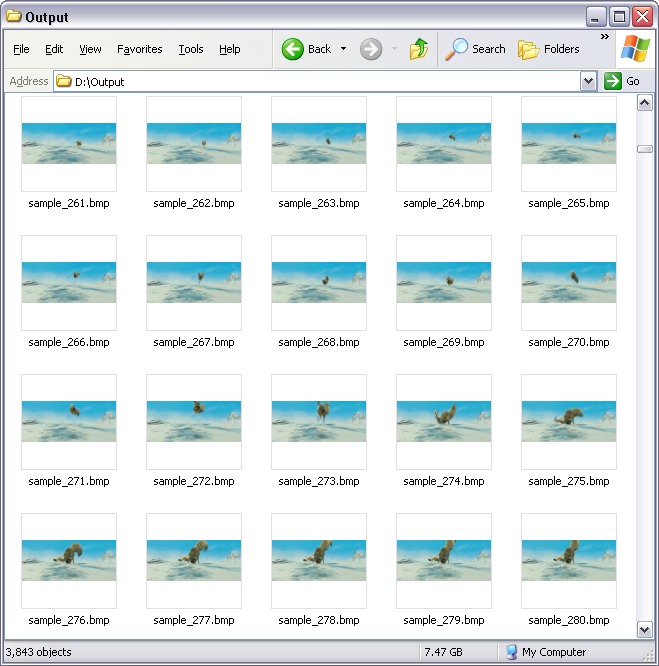
The software also supports other formats and portable devices such as AMR, MKV, FLAC, MPG, CAF (Core Audio Format), TIFF image sequence, M4R (iPhone ringtone),
etc. The software could convert 3G2 to M4V, MOD to WebM (VP8), M2TS to MPA, FLV to PPM image sequence, MOD to MPG, and so on.
H264 to BMP Software supports batch conversion and, is compatible
with Windows 10/8/7/Vista/XP/2000.

What is H264?
H.264 encompasses a collection of powerful features that enable the delivery
of high-quality video at very low data rates. For example, H.264 has been
reported to give the same Digital Satellite TV quality as current MPEG-2
implementations with less than half the bitrate, with current MPEG-2 implementations
working at around 3.5 Mbit/s and H.264 at only 1.5 Mbit/s. To ensure compatibility
and problem-free adoption of H.264/AVC, many standards bodies have amended
or added to their video-related standards so that users of these standards
can employ H.264/AVC. The standard was developed jointly in a partnership
of VCEG and MPEG, after earlier development work in the ITU-T as a VCEG
project called H.26L. Two profiles were developed in the MVC work: Multiview
High Profile supports an arbitrary number of views, and Stereo High Profile
is designed specifically for two-view stereoscopic video. Formal approval
of the specification came in March 2003. Occasionally, it is also referred
to as "the JVT codec", in reference to the Joint Video Team (JVT)
organization that developed it. Main Profile (MP): This profile is used
for standard-definition digital TV broadcasts that use the MPEG-4 format
as defined in the DVB standard. It is not, however, used for high-definition
television broadcasts, as the importance of this profile faded when the
High Profile was developed in 2004 for that application. From January 2005
to November 2007, the JVT was working on an extension of H.264/AVC towards
scalability by an Annex (G) called Scalable Video Coding (SVC). AVCHD is
a high-definition recording format designed by Sony and Panasonic that
uses H.264 (conforming to H.264 while adding additional application-specific
features and constraints).
What is BMP?
BMP is an image file format created by Microsoft. Also called 'bitmap'
or DIB (device independent bitmap) file format, it is used to store bitmap
digital images mainly in the Microsoft Windows environment. The other platforms
that support the BMP file format are OS/2 and MS-DOS. Windows bitmap files
are stored in a device-independent bitmap (DIB) format that allows Windows
to display the bitmap on any type of display device. The term "device
independent" means that the bitmap specifies pixel color in a form
independent of the method used by a display to represent color. The default
filename extension of a Windows DIB file is .BMP. The BMP file format is
capable of storing 2D digital images of arbitrary width, height, and resolution,
both monochrome and color, in various color depths, and optionally with
data compression, alpha channels, and color profiles. The purpose of the
color palette in indexed color bitmaps is to inform the application about
the actual color that each of these index values corresponds to. BMP was
designed to contain bitmaps of different color resolutions so they could
easily be exchanged between different internal devices. Hence the name
device independent bitmaps, or DIB. As opposed to a device-dependent bitmap,
the DIB/BMP is an external bitmap where it is transported in metafiles.
The new extended headers can be used with some GDI functions instead of
the older ones, providing more functionality. Since the GDI supports a
function for loading bitmap files, typical Windows applications use that
functionality. One consequence of this is that for such applications, the
BMP formats that they support match the formats supported by the Windows
version being run.
How to Convert H264 to BMP Sequence?
- Free Download H264 to BMP Conversion
Software
- Install the Program by Step-by-step Instructions
- Launch H264 to BMP Software
- Choose H264 Files

Click "Add Files" to choose H264 files.
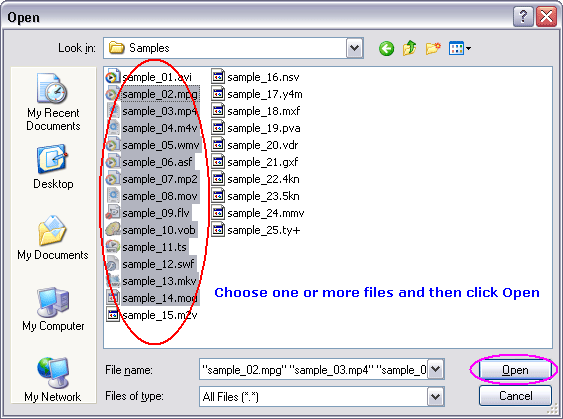
Choose one or more H264 files you want to convert and then click Open.
H264 to BMP Software will open H264 files and get file information
of the file such as width, height, frame rate, video bit rate, audio sample rate,
audio bit rate, audio channels, and then display the information of H264 file
at conversion list.
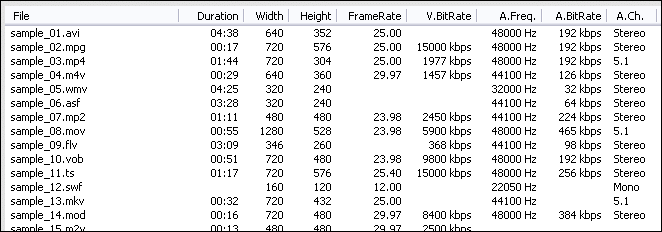
- Choose Output Format
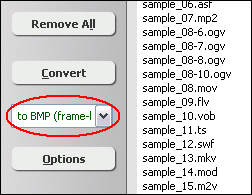
Click on combo-box of output format and then choose "to BMP (image sequence)".
- [Optional, for advanced user]
Set BMP Encoding Parameters
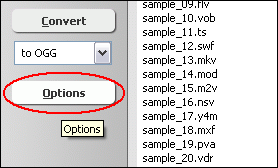
If you want to change BMP encoding parameters such as frame rate, video size,
aspect ratio, and so on, please click "Options".
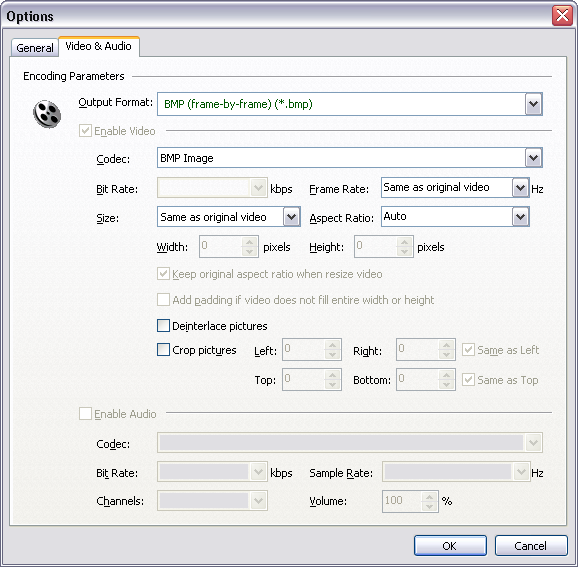
And then, switch to tab "Video & Audio" and choose "BMP
(image sequence)" at "Output Format", and then set options
for image encoding.
- Convert H264 to BMP
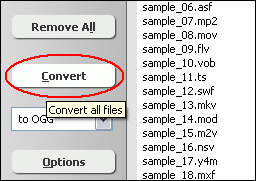
Click "Convert" to convert H264 to BMP sequence.

The software is converting H264 files to BMP.
- View and Browse BMP Files
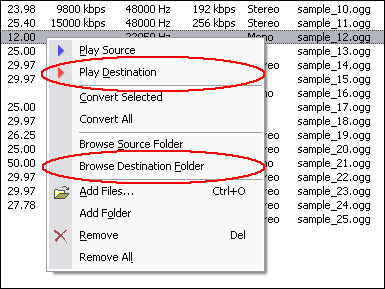
When conversion completes, you can right-click converted item and choose "Play
Destination" to view the first outputted BMP file; or choose "Browse
Destination Folder" to open Windows Explorer to browse the outputted BMP
files.
- Done
Top
H264 to BMP Software is 100% clean and safe to
install. It's certified by major download sites.

Convert H264 to BMP Related Topics:
|












